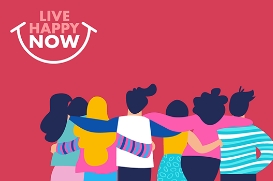New film 'To The Bone' explores eating disorders and societal norms.
From the moment we’re born, others judge us and comment on our appearance. “What a beautiful baby!” “Who does he look like, mom or dad?” Our height and weight are among the first official facts sent to our family and friends on baby announcements. For most of us, how we feel about our appearance is a barometer of how we feel we fit into the world. When we feel good about how we look, we feel better about ourselves.
Societal norms, our upbringing and the baggage we have picked up along the way all impact how we feel about our bodies. Our body image can affect how we think, feel and behave. If we feel positively about our bodies, it impacts us in a positive way. If we feel negative about our physical self, it can impact our mood, emotional well-being and may even build the foundation for an eating or psychological disorder.
Glamorizing anorexia?
 Netflix is tackling some of these body-image issues in its new controversial film, To the Bone. The story features a 20-year-old woman dealing with anorexia nervosa. Some critics claim the movie glamorizes anorexia, possibly laying the groundwork for its vulnerable teenage audience to develop eating disorders. To its defenders, To the Bone creates awareness and stirs much-needed conversation about the topic.
Netflix is tackling some of these body-image issues in its new controversial film, To the Bone. The story features a 20-year-old woman dealing with anorexia nervosa. Some critics claim the movie glamorizes anorexia, possibly laying the groundwork for its vulnerable teenage audience to develop eating disorders. To its defenders, To the Bone creates awareness and stirs much-needed conversation about the topic.1. Look at the whole you
Take what I call a "whole me" point of view. Don't just focus on what you perceive as your flaws. Instead, look at your long lashes, your capable fingers that type so many words per minute, your strong back that enables you to carry a kid in each arm.
2. Turn off the chatter
Be aware of negative familial and societal voices that may be impacting your self-image—including the self-talk coming from your own mind. Does your mother always comment about your weight? Does your best friend consistently talk about diet and exercise, making you wonder if she is dropping a hint? Do attractive models in magazines push your buttons? Work toward emotionally detaching yourself from these situations; let your family or friends know that you don't want to engage in these types of conversations.
3. Heal your history
Do you carry emotional baggage about your body image from your past? If we are overweight and teased as children, even if we lose all the fat, we may never completely lose the emotional weight. Our bodies bear their own emotional memories—from trauma, shame, criticism. If you are carrying this kind of burden, read books, search the internet and seek specialized counseling to move beyond past negative experiences. This will not only help your body image, but it will also help your overall health and well-being.
4. Create a list of positives
 List all of the "things I like about my body." Get specific. Talk about everything from your freckles to your toenails to your hair. Come up with as many as you possibly can, and read the list over when needed.
List all of the "things I like about my body." Get specific. Talk about everything from your freckles to your toenails to your hair. Come up with as many as you possibly can, and read the list over when needed.5. Rewrite your internal script
Stacy Kaiser is a licensed psychotherapist, author, relationship expert and media personality. She is also the author of the best-selling book, How to Be a Grown Up: The Ten Secret Skills Everyone Needs to Know, and an editor-at-large for Live Happy. Stacy is a frequent guest on television programs such as Today and Good Morning America.















